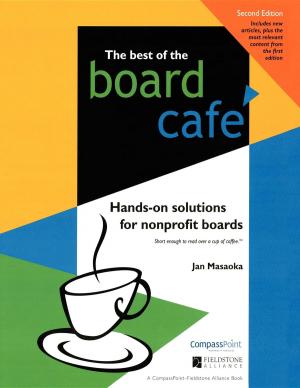A Gift for the Asking:
Eight Principles of Successful Fundraising
Business & Finance, Management & Leadership, Leadership| Author: | Gerald S. Levey, MD, Dan Gordon | ISBN: | 9781936406296 |
| Publisher: | Second River Healthcare | Publication: | March 3, 2014 |
| Imprint: | Language: | English |
| Author: | Gerald S. Levey, MD, Dan Gordon |
| ISBN: | 9781936406296 |
| Publisher: | Second River Healthcare |
| Publication: | March 3, 2014 |
| Imprint: | |
| Language: | English |
FROM THE PUBLISHER:
Dr. Gerald Levey can “Talk the Talk and Walk the Walk.” At UCLA as the former dean of the David Geffen School of Medicine and the former vice chancellor of Medical Sciences, he led a team that raised $1.75 billion for the medical sciences.
Dr. Levey shares his principles of success and how an organization can learn and apply in their community what he did at UCLA. There are only three ways to improve the bottom line of a healthcare organization: raise revenues (harder in this environment), decrease expenses (also difficult, since that is what hospitals have been doing for years), or ask a friend of the institution to donate funds. His principles lay out, step by step, how to achieve the vision and goals of the institution.
Levey’s Eight Principles of Fundraising
Principle One: You need respected people in the community introducing you to the people of influence and affluence in the community.
Principle Two: Be thoroughly prepared when soliciting a donor.
Principle Three: Ask for what you need, not what you think the person can give.
Principle Four: Be patient, keep trying, and never give up.
Principle Five: Donors to academic medical centers expect a quid pro quo for their gifts–access to the best medical care.
Principle Six: Don’t compete with the faculty.
Principle Seven: Philanthropy is a contact sport.
Principle Eight: Create a first-rate Office of Development.
Dr. Levey’s Principles can be adapted to any size organization or community. There are individuals in every community that have affluence. No matter what the size of your organization, if you have a sound fundraising plan, you can achieve great things. If your organization only raised 10 percent of what UCLA did, you would have $175 million. If you only raised 1 percent, you would have $17.5 million. What’s holding you back? Apply the lessons in this book and Go For It!
Jerry F. Pogue
FROM THE PUBLISHER:
Dr. Gerald Levey can “Talk the Talk and Walk the Walk.” At UCLA as the former dean of the David Geffen School of Medicine and the former vice chancellor of Medical Sciences, he led a team that raised $1.75 billion for the medical sciences.
Dr. Levey shares his principles of success and how an organization can learn and apply in their community what he did at UCLA. There are only three ways to improve the bottom line of a healthcare organization: raise revenues (harder in this environment), decrease expenses (also difficult, since that is what hospitals have been doing for years), or ask a friend of the institution to donate funds. His principles lay out, step by step, how to achieve the vision and goals of the institution.
Levey’s Eight Principles of Fundraising
Principle One: You need respected people in the community introducing you to the people of influence and affluence in the community.
Principle Two: Be thoroughly prepared when soliciting a donor.
Principle Three: Ask for what you need, not what you think the person can give.
Principle Four: Be patient, keep trying, and never give up.
Principle Five: Donors to academic medical centers expect a quid pro quo for their gifts–access to the best medical care.
Principle Six: Don’t compete with the faculty.
Principle Seven: Philanthropy is a contact sport.
Principle Eight: Create a first-rate Office of Development.
Dr. Levey’s Principles can be adapted to any size organization or community. There are individuals in every community that have affluence. No matter what the size of your organization, if you have a sound fundraising plan, you can achieve great things. If your organization only raised 10 percent of what UCLA did, you would have $175 million. If you only raised 1 percent, you would have $17.5 million. What’s holding you back? Apply the lessons in this book and Go For It!
Jerry F. Pogue















